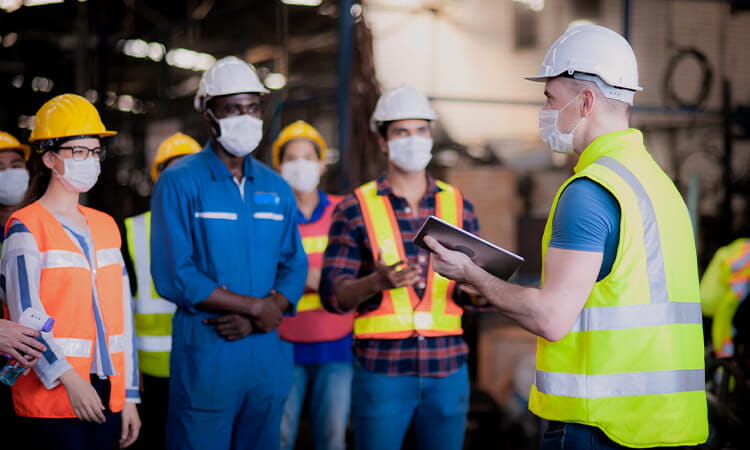What does a health and safety officer do?
As a health and safety officer (also known as a workplace health and safety (WHS) officer or safety officer) you would be responsible for protecting the safety and wellbeing of staff. Health and safety jobs involve creating and implementing occupational health and safety (OHS) or WHS strategies to make sure hazards and risks are properly identified, assessed, and managed.
So what is work health and safety and what does this job entail day-to-day? WHS officers manage risks to benefit the health and safety of those in the workplace. In this role, you would be involved in investigating workplace incidents to ascertain how and why they occurred, as well as implement preventative measures for future situations. As a safety officer, you might also oversee the coordination of emergency procedures and assign staff to first aid and fire warden positions.
Is a career as a health and safety officer right for me?
If you have an eye for detail and an appreciation of regulations and procedures, you might enjoy a role as a safety officer. Other skills and attributes beneficial for this role include:
- good interpersonal skills
- the ability to work independently and as part of a team
- strong leadership skills
- good communication skills
- the ability to problem-solve effectively.
How to become a health and safety officer
To become a health and safety officer, you would typically need a formal qualification in health and safety or qualifications in a related field. A bachelor degree in occupational health and safety management or business is commonly required. Additionally, professional certifications or vocational training are also pathways that may be necessary to become a health and safety officer.
Every journey to study is individual and there are several paths to reaching your career goals. At UniSQ, we offer the following degrees in the area of human resource management:
Source: yourcareer.gov.au
© Commonwealth of Australia
Last updated May 2024.

The key responsibilities of health and safety officers are centred around ensuring that all safety laws are adhered to within the workplace. Some key health and safety officer duties include:
- Conducting risk assessments: identifying potential hazards in the workplace and analysing the risks associated with them, inclusive of devising strategies to mitigate risks.
- Policy development: creating and implementing health and safety policies and procedures that promote a safe working environment.
- Training: organising and delivering health and safety training to employees to ensure they are aware of potential hazards and how to handle them.
- Accident investigation: examining workplace accidents to determine the cause and prevent future incidents.
- Compliance checks: regularly checking that the workplace is in compliance with all relevant health and safety laws and keeping up to date with new legislation.
- Emergency procedures: managing and testing emergency procedures, such as evacuations, and ensuring that all employees understand these procedures.
Reporting: keeping records of incidents and injuries and producing reports required by regulatory bodies.
The demand for health and safety officers is stable, reflecting a steady need for workplace safety and compliance with health regulations across various industries.
Health and safety officers are primarily important in industries such as construction, manufacturing, mining, and healthcare, where the potential for workplace accidents and health issues is higher. Moreover, the ongoing global emphasis on improving safety standards in response to past incidents and public health emergencies also contributes to the growing demand for professionals in this field.